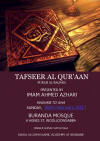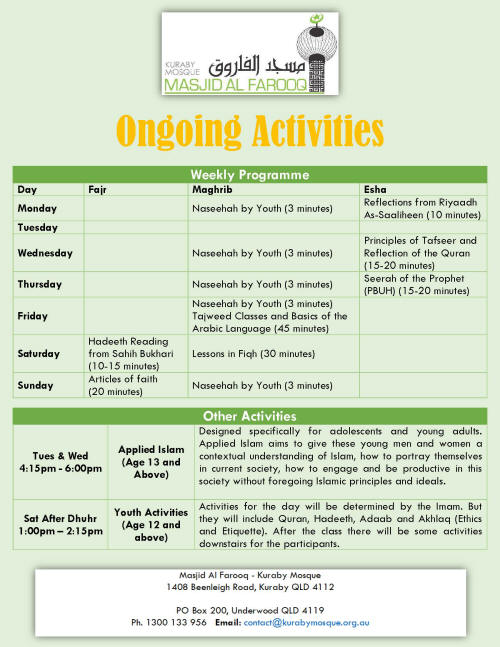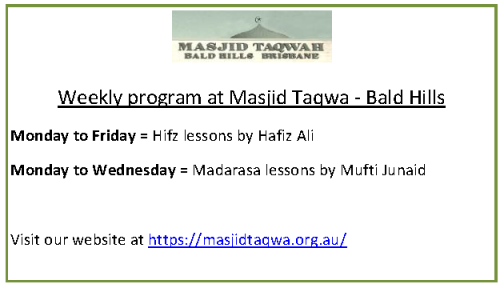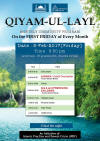|
A tall young man with warm
brown eyes walks across the
soft Persian carpet of a
Melbourne mosque, smiling.
Imam Alaa El Zokm stands
almost two metres, and in
his long, grey clerical
robes seems even taller, as
though his height were a
conscious decision –
something to help better
watch over all 600 people
here at the Elsedeaq Islamic
Society in suburban
Heidelberg Heights.
The building sits on a
corner surrounded by
weatherboard houses, and
right now old men and tiny
boys and taxi drivers on
lunch break – a mix of
Egyptians, Somalis and
Australians – are stopping
in for the imam's khutbah or
Friday speech, the Muslim
equivalent of a Sunday
sermon. They shake his
large, soft hands, and nod
to one another. They pick up
copies of Australian Arabic
newspaper Al-Wasat, glance
at the headline ("The
Climate of Fear that Divides
Australian Society") and
skim ads for camel milk and
sharia-compliant
investments.
|
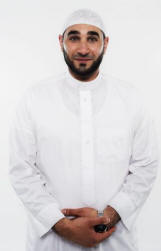
Imam Alaa El Zokm likens some
people's fear of Muslims to a
fear of snakes - snakes that are
more afraid of you than you of
them, and that are rarely
encountered. |
We meet at the mosque some
time before new US President
Donald Trump issues an
executive order targeting
citizens from seven
predominantly Muslim
countries, creating
international outrage. The
imam has been advising his
flock not to worry about
Trump, not as "much as we
should about ourselves".
When news breaks of the
order, I call him. He says
he is not angry or even
confused by Trump's latest
attack on Muslims, but
instead disappointed. "And
unfortunately we hear the
same thing from some people
in Australia, like Pauline
Hanson. It is taking us back
to an age of darkness. This
is something against
humanity."
The people who come to his
mosque are mostly from
Somalia, one of the seven
countries identified for
"extreme vetting". He tells
me that they came
immediately to him, seeking
comfort. "They are
frightened," he said. "But I
tell them that the majority
of the American people are
educated and good, and
renounce racism, and want to
live in a peaceful society,
and are against this
decision. I tell them I have
hope."
But on this day long before
the Trump inauguration, it
is a regular day at the
mosque. It fills until the
hall is bursting, as are the
ante-rooms, carport and the
lawn outside. The women and
girls sit upstairs in a
balcony behind a fabric
veil, listening to his words
on a closed-circuit TV loop.
Among the crowd is Abdi
Alasoo, 50, a retired
scaffolder and part-time
Uber driver who left Somalia
30 years ago "with $100 and
a one-way ticket".
I ask how he likes the young
imam, who is 27 and has been
with the mosque two years,
and whom I plan to follow
for three months to see what
it means to live at the
centre of an Islamic
community in Australia.
Before Alasoo can answer,
the imam overhears and
offers his own
self-assessment: "Good. Very
good," the imam says,
laughing and waving. "You
say, 'The sheikh is very
good.' I will pay you!"
Alasoo says as much anyway.
The whole flock does.
"Sheikh Alaa," they say,
knows Islam, speaks English,
is highly educated, and he
is moderate. "He says it is
our job to convince others
that what the people say,
the media says, the
terrorist says, is not us,"
says Alasoo. "We have to
show more of that good
thing."
In the mornings, afternoons
and late nights I spend with
the imam, he has many
avenues for spreading his
message. As a spiritual
adviser, of course, but also
as a school teacher,
marriage counsellor and
confidant – mediator of
business rifts and settler
of personal quarrels. The
imam is the man his
congregation can turn to at
any hour, with a Facebook
message or pre-dawn phone
call or a knock at the door
near midnight, which they do
with a torrent of questions
and problems for him to
reconcile.
His wife, 21-year-old Rheme
Al-Hussein, says they call
from his native Egypt, too,
all through the night. He
exists on coffee with milk
and two sugars. "I feel
sorry for him sometimes,"
she says. "At the end of the
day I can tell when he's not
there, when I'm talking to a
wall."
He stands now inside the
mihrab, a semicircular wall
cavity that faces Mecca. The
crescent-shaped
architectural feature can be
found in most mosques and
once acted as a kind of
amplifier. In the new
millennium, a headset
microphone will do. He prays
now, eyes closed, shoulders
rising and falling as he
takes deep gulps of air to
sing each undulating phrase.
And then he ascends the
minbar – a raised platform
of timber steps – to a seat
like a throne. (The imam
tells me later that this is
not merely to elevate him in
the eyes of others. "It is
also for the imam himself,"
he says. "When he goes up,
he should know that he is a
role model for everyone,
that his sayings must match
his actions.")
The sayings in this speech
come in a passionate Arabic
flurry. Afterwards, he
repeats the same in
developing English. "We must
address the Islamophobia!"
he says. "People are afraid
from the Islam. They see
Islam and see the terrorist.
They see Islam and they see
the mistreatment of the
women. They see Islam and
they see the jihad. But as
the Prophet said, the most
important jihad is the jihad
within! It is the jihad
against hatred, and the
hardened heart."
He likens a fear of Muslims
to a fear of snakes – snakes
that are more afraid of you
than you of them, and that
are rarely encountered. A
recent Ipsos Mori poll found
that while the Muslim
population of Australia is
little more than 2.4 per
cent, Australians on average
believe the religion
accounts for 18 per cent.
Furthermore, an Essential
Research poll recently found
49 per cent of Australians
would support a ban on
Islamic immigration, citing
perceived concerns over
terrorism and Muslims
failing to share Australian
values. Another study found
60 per cent would be
"troubled" by a relative
marrying a Muslim.
“I tell [my community] that
the majority of the American
people are educated and
good, and renounce racism,
and want to live in a
peaceful society, and are
against this decision. I
tell them I have hope.”
"We must reach out. We
must!" he pleads. "It is our
responsibility – to make
friends with the non-Muslim,
to show them who we are, so
that when something bad
happens they can point to us
and say 'No! This is my
friend! He is Muslim and he
is not like this – this is
not what he believes.' We
must be role models."
|
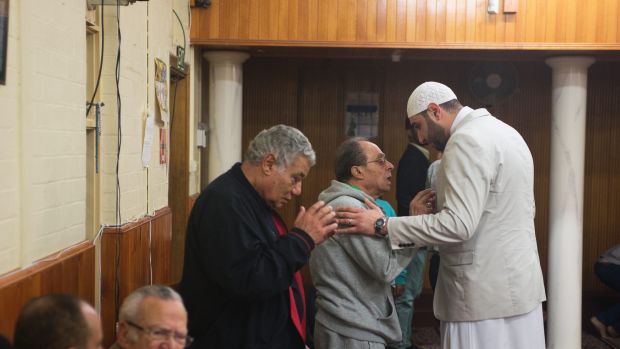
Imam Alaa El Zokm at the
Elsedeaq Islamic Society in
Melbourne's Heidelberg Heights.
|
Alaa El Zokm sits on a white
leather couch in his yellow
brick veneer home opposite
the mosque. Hussein hands me
a plate of orange wedges,
strawberries and mango, then
sits down. Zokm reaches
across, touches an eyelash
off his wife's cheek, and
blows it away.
They have an easy rapport.
No kids yet. Hussein is
focused on school. In her
third year of a master's
degree in speech pathology,
the workload is heavy.
They met almost three years
ago when the imam first came
for a visit from Egypt,
invited here to consider a
position with the mosque and
a school. "I didn't know
anything about Australia,"
he says. "Nothing. The end
of the earth? Kangaroos?"
His hosts then were wary for
the imam, worried that the
religious leader would
explore Australian streets
and be confused or upset
when passing a raucous
corner pub or a Victoria's
Secret store. He watched
American movies growing up,
however, and so the culture
shock was not so extreme,
even though he remains
steadfast on matters such as
drinking or sex before
marriage. "It's very clear,"
he says. "It's not allowed.
In any way."
Near the end of his trip,
the imam was invited by a
sheikh to meet two local
girls. The Lebanese one, he
was told, was more
religious, and the Egyptian
one more beautiful. Who did
he want to meet?
The imam was stunned. He
went along to a home in
Melbourne's north, however,
and the Lebanese girl was
there, being taught the
Koran. She was shy and did
not look at him. He didn't
look at her, either. They
both giggle at the memory.
"It was very funny!" says
Hussein. "We didn't even
meet! It was so weird. He
was here for three weeks and
going back to Egypt. I was
only 18."
They both thought and
prayed. Hussein had always
wanted to marry an Islamic
leader, and the imam knew
marriage could be
advantageous. "The imam is
always watched," he says.
"Sometimes it is not enough
to be a pure person." He
returned to Egypt, taking
with him a photo of Hussein,
permission from her family
to talk on Facebook, and a
video of her reciting the
Koran. He kept the video
secret for a week, watching
it alone every day. "What am
I to say to my mother? 'I
saw a girl, and I would like
to be engaged with her, and
leave you all?' My family is
not ready for this."
The imam grew up in Itay El
Baroud, a small city on the
Nile Delta. His mother
taught him the Koran. From
five, the little boy would
memorise a passage, go and
play with his friends, while
his mother memorised the
same section – to test him
upon his return. "This
motivated me, this
competition with my mum, not
to make mistakes. She would
say, 'I am working, doing
all my duties in the house,
and memorising better than
you.' She sometimes was
sleeping only two hours. It
makes you feel ashamed if
you are not doing your
best."
Zokm became a childhood
Koran contest champion,
besting as many as 5000
competitors at a time. He
went to Cairo's prestigious
Al-Azhar University, which
for more than 1000 years has
been a beacon for the faith,
representing a moderate
stream of Islam. Hussein
recalls his pledge to her
during their eight-month,
long-distance, online
courtship: "I will never
stop you from knowledge."
They were engaged on Skype,
Hussein in northern
Melbourne's Roxburgh Park
with her family, the imam in
Itay El Baroud with his. The
agreement was sealed by
reading the first page of
the Koran. And then he was
here, married in a tea hall
in front of several hundred
people: "It's something you
never imagine. Being here,
living here, a new wife, a
new life."
Alaa El Zokm sits on a white
leather couch in his yellow
brick veneer home opposite
the mosque. Hussein hands me
a plate of orange wedges,
strawberries and mango, then
sits down. Zokm reaches
across, touches an eyelash
off his wife's cheek, and
blows it away.
They have an easy rapport.
No kids yet. Hussein is
focused on school. In her
third year of a master's
degree in speech pathology,
the workload is heavy.
They met almost three years
ago when the imam first came
for a visit from Egypt,
invited here to consider a
position with the mosque and
a school. "I didn't know
anything about Australia,"
he says. "Nothing. The end
of the earth? Kangaroos?"
His hosts then were wary for
the imam, worried that the
religious leader would
explore Australian streets
and be confused or upset
when passing a raucous
corner pub or a Victoria's
Secret store. He watched
American movies growing up,
however, and so the culture
shock was not so extreme,
even though he remains
steadfast on matters such as
drinking or sex before
marriage. "It's very clear,"
he says. "It's not allowed.
In any way."
Near the end of his trip,
the imam was invited by a
sheikh to meet two local
girls. The Lebanese one, he
was told, was more
religious, and the Egyptian
one more beautiful. Who did
he want to meet?
The imam was stunned. He
went along to a home in
Melbourne's north, however,
and the Lebanese girl was
there, being taught the
Koran. She was shy and did
not look at him. He didn't
look at her, either. They
both giggle at the memory.
"It was very funny!" says
Hussein. "We didn't even
meet! It was so weird. He
was here for three weeks and
going back to Egypt. I was
only 18."
They both thought and
prayed. Hussein had always
wanted to marry an Islamic
leader, and the imam knew
marriage could be
advantageous. "The imam is
always watched," he says.
"Sometimes it is not enough
to be a pure person." He
returned to Egypt, taking
with him a photo of Hussein,
permission from her family
to talk on Facebook, and a
video of her reciting the
Koran. He kept the video
secret for a week, watching
it alone every day. "What am
I to say to my mother? 'I
saw a girl, and I would like
to be engaged with her, and
leave you all?' My family is
not ready for this."
The imam grew up in Itay El
Baroud, a small city on the
Nile Delta. His mother
taught him the Koran. From
five, the little boy would
memorise a passage, go and
play with his friends, while
his mother memorised the
same section – to test him
upon his return. "This
motivated me, this
competition with my mum, not
to make mistakes. She would
say, 'I am working, doing
all my duties in the house,
and memorising better than
you.' She sometimes was
sleeping only two hours. It
makes you feel ashamed if
you are not doing your
best."
Zokm became a childhood
Koran contest champion,
besting as many as 5000
competitors at a time. He
went to Cairo's prestigious
Al-Azhar University, which
for more than 1000 years has
been a beacon for the faith,
representing a moderate
stream of Islam. Hussein
recalls his pledge to her
during their eight-month,
long-distance, online
courtship: "I will never
stop you from knowledge."
They were engaged on Skype,
Hussein in northern
Melbourne's Roxburgh Park
with her family, the imam in
Itay El Baroud with his. The
agreement was sealed by
reading the first page of
the Koran. And then he was
here, married in a tea hall
in front of several hundred
people: "It's something you
never imagine. Being here,
living here, a new wife, a
new life."
|
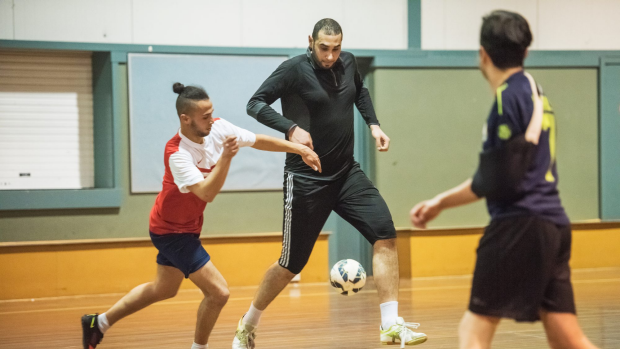
Alaa El Zokm playing his
weekly post-prayer soccer match
against the young men of the
mosque.. |
The imam speeds away from
the mosque at 7.37pm on a
Sunday night, wearing a
Chelsea Football Club
tracksuit. He's headed to an
indoor basketball court,
part of the Olympic village
from the 1956 Summer Games,
to play a weekly post-prayer
soccer match against the
young men of the mosque.
"The image that comes to
mind for a sheikh or imam is
a hard person," he says,
turning the wheel of his
Mazda 3. "People will try to
be silent, to listen,
because they are afraid to
say something wrong,
thinking, 'I can't joke with
him. I can't ask him to come
play PlayStation.' And it is
not true. The religion is
not what will keep you from
enjoying life. If this was
the religion, I would never
follow it!"
But is he any good with the
round ball? "You will see,"
he says, smirking. "I don't
want to talk about myself."
The guys are already on the
squeaking wood surface under
big industrial globes, and
soon the imam is among them,
loping after the ball like a
lost giraffe. But then he
kicks, and he has a cannon.
He fires shots from all
angles and the ball thuds
against posts and bodies. He
does not often pass.
"Stop shooting!" yells one
player, laughing.
"Oohhh Alaa!" cries another,
as the imam attempts a
speculative strike.
"Goon hayel!" jokes one
spectator. (Arabic for
"great goal", it is said
sarcastically.)
Yet he scores five goals in
90 minutes of the three-hour
game. As he walks off court
he is patted on the back by
Khaled Elkharibi, 21. "He
just demolished half our
team," says Elkharibi. "Five
goals in a 15-goal game. And
he only came in halfway."The
radicalisation of young
Islamic men is, naturally, a
concern for the imam. But he
has never known anyone to
take up arms on behalf of
Allah. Hussein believes most
who do so are in fact
"converts" to the religion.
"They have no knowledge of
Islam," she says. "They
drink, they eat pork, they
don't go to our schools, but
they have the beard and
white clothes."
The imam points the finger
at chronically
misinterpreted phrases
within the Koran. "Jihad" is
just one example. There are
also passages that note
whoever is killed for his
country will be rewarded in
paradise: "But this was from
a time when Islam was under
siege.
"Sometimes they go down this
path for benefits," he adds.
"They are promised wives or
money or jobs by Islamic
State, so they hide what
they have in their minds."
It is a perfect spring
evening in Melbourne;
sunshine pours through the
high windows of the
Government House ballroom,
striking a crystal
chandelier above the imam,
who sits in the third row of
a large gathering.
A school orchestra is
playing, bouncing prim notes
off gilded walls painted
with fleurs-de-lis. There
are police, women in saris
and tall Sudanese men,
gathered for the Victorian
Multicultural Awards for
Excellence.
Speakers drop encouraging
multiculturalism buzz-words:
cross-cultural empathy and
social harmony, diversity
and diaspora. Maoris with
spears perform the haka:
"The harder we go, the more
we feel, the greater the
respect," says one. "We hope
you feel respected." The
imam nods.
The imam receives a Police
Community Exemplary Award,
recognising the work of the
mosque through open days,
volunteer efforts, Iftar
dinners and Eid festivals.
The imam looks resplendent
in an ankle-length coat, the
kakola, and his hat, the
emma – the distinctive
uniform of his alma mater in
Egypt.
He wears such garb in
public, too, at supermarkets
and petrol stations. He has
never been abused – "Perhaps
because I am big" – but does
notice people laughing at
him sometimes, or looking
worried. Yet he enjoys going
into shops – even when he
senses he is being watched.
"They may be thinking, 'He
has a bomb.' Let them have
these thoughts," he says.
"Because when you smile, and
leave, and everyone is safe,
you will change these
thoughts."
The evening turns to
Vivaldi, canapés, champagne
or, in the case of the imam,
apple juice. Inspector Anne
Patterson, the local police
commander, looks on as he
poses for photos by a
lamp-lit fountain. "Isn't he
wonderful?" she whispers.
"He's incredibly progressive
as a thinker. I really like
his central messages, about
community harmony, the faith
not being inconsistent with
the Australian way of life.
Even delivering his messages
in English – realising that
sometimes when they're only
delivered in Arabic it can
isolate others."
The latter gesture is not a
simple one, either. English
is his second language. When
the imam first arrived, he
would write his speeches and
Hussein would translate
them, and he would read
English directly from the
sheet. And then he stopped.
He thanked his wife for her
help, but decided to speak
from the hip, even if it
meant mistakes. "I was so
scared when he said that,"
says Hussein. "I was like,
'What if you stuff up? What
if you need help?' I can't
be there, because I'm
upstairs with the women.
Then the first time he did
it, I said, 'That's it,
we're never going to do a
translation again, because
this is perfect.' "
They depart quickly, riding
home in a police car. He is
happy the windows are
tinted, he jokes, so no one
can see inside: "Otherwise
our community will think
that we are arrested!"
|
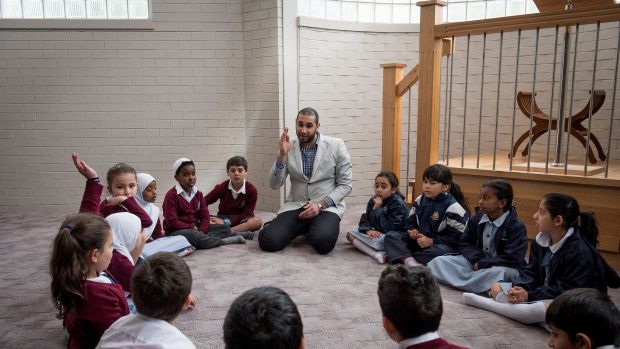
Imam Alaa El Zokm teaching an
Islamic studies class at the
Australian International Academy
in Coburg North. “I teach them
that God loves them,” he says,
“rather than saying, ‘If you do
this you will go to hell’. They
are little bodies who want to
enjoy life.” |
It's Wednesday morning, the
first week in November, the
day after the Melbourne Cup,
and the imam sits on grey
carpet in the corner of a
little mosque at the
Australian International
Academy of Education – an
Islamic primary school. He
is part of a circle of 15
year 2 students wearing blue
jackets and maroon jumpers,
with plastic heart bracelets
and purple Swatches. They
are discussing love.
The imam has taught before
at schools in the Middle
East, most notably Saudi
Arabia. He saw much there
that confused him, such as
women not being allowed to
drive. "If you say, 'This is
the policy of the country,'
I will accept this – this is
your rules, your law – but
if you try to make this an
Islamic thing, this is
wrong," he says. "She has to
go outside – that is normal
life."
In Australia, the imam
shields children from
stringent lessons about what
is lawful and not. "I teach
them that God loves them,"
he says, "rather than
saying, 'If you do this you
will go to hell.' They are
little bodies who want to
enjoy life."
He teaches through
brainstorming, reflection
and practice. ("I teach them
how to discuss," he says,
"not to know.") And today
the lesson is the mosque
itself – a place most have
never really been before.
They are incredibly excited.
With each question the imam
asks, arms shoot high and
the kids – like Jumanah,
Salman and Fatima – squirm
onto their knees, contorting
their tiny forms, desperate
to answer.
He asks first, "What do you
know about the mosque?"
You have to be very quiet?
You can't talk while the
sheikh is reciting the
Koran.
It's a place you pray.
It's where we read the
Koran.
You come to the mosque so
Allah can take away all your
sins.
"Excellent," he says. "We
come to the mosque because
everyone is making mistakes.
And we come to ask
forgiveness."
It's where we tell the
truth?
"Yes, but we say the truth
everywhere, don't we? We say
the truth at home, outside.
Always."
He explains why the mosque
is called "Allah's house".
He talks about why the lines
on the floor face Mecca, and
why congregants line up:
"What does it teach us?"
To not be racist?
"Yes, can you explain this?"
Because if you are a white
person you might be sitting
next to a brown person?
"That's right," he says.
"The Prophet is teaching us
equality. There is no
difference between the
person who comes from
Pakistan or India, from the
rich person and the poor
person."
|

Imam Alaa El Zokm at the
Australian International Academy
in Coburg North last November.
|
Near the end of the lesson
he waits for silence – "I am
going to stop until I see
everyone is quiet!" – and
assembles the children in a
line. They remove their
Bonds socks and Hello Kitty
socks, and he sends them to
the ablution room one by
one, the quietest child
first. There he explains how
to make wudu – cleaning the
hands, face and arms, wiping
your head, ears and feet in
preparation for prayer. They
scurry back into the mosque,
damp and squealing "I'm
soaking!" and "That was so
easy!" and "Time to pray!"
Leyla Mohamoud, the head of
the campus, says the imam is
the perfect teacher for
spirituality. She wants to
show me the school, too, and
explain how they have footy
days, and ties to local
scout groups. She points to
photos from Halloween, when
the kids came as vampires
and chefs and superheroes.
The tour ends in the art
room, where the walls are
covered in drawings of
smiling faces.
The imam points to a pencil
sketch of a smiling girl
with green eyes. He notes
that in other parts of the
world, such a picture could
not exist. "It is
forbidden," he says, looking
into the rendered face, and
shaking his head. "But these
eyes are beautiful."
|
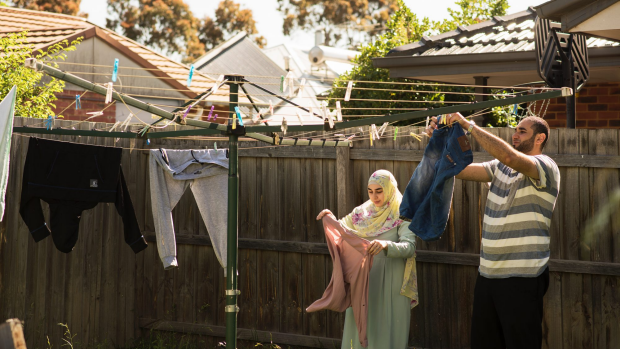
Alaa El Zokm sharing chores
with his wife, Rheme. “This is a
problem with the husbands,” the
imam says. “They do not help.”
|
A few weeks later, the imam
is standing in his home's
backyard. Amid the overgrown
grass and daffodils, a Hills
Hoist stands in the corner.
The imam pins a pair of wet
tracksuit pants to the line.
"This is a problem with the
husbands. They do not help,
do not share the work," he
says. "They think the
woman's role is to stay in
the home and do everything.
That is not Islam."
Such behaviours are, he
says, habits. Bad ones. This
was the subject of his
speech only an hour earlier
at the mosque: What is
Islam, what is faith, and
what is not?
While there are no great
schisms within the mosque,
there are local Sunni who do
not want to sit with the
Shia. There are those who do
not believe that eliminating
Islamophobia is the
responsibility of those who
follow Islam, but those who
have the phobia. "Some of
them come angry, and I have
to absorb their anger," the
imam says, grasping the air
in front of him, and drawing
it to his chest. "I listen,
smile. I find a verse of the
Koran, something common
between us."
He pins a final T-shirt to
the line, and a rainbow
lorikeet rests on a
lemon-scented gum nearby.
"We believe that this is our
job – our mission in life,"
he says, as the bird sings
into the day. "If we don't
do this, then later we will
be asked by God, 'What did
you do with the message you
had?' If we don't spread
this message, we will not
prosper. If we don't do
this, then who will?"
Source:
Sydney Morning Herald
|

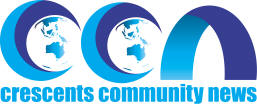
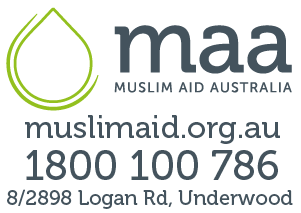

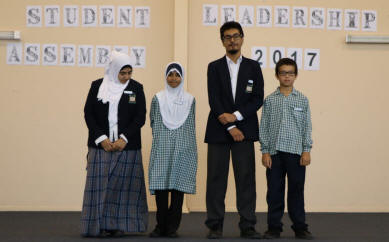
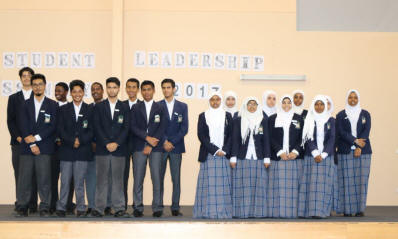
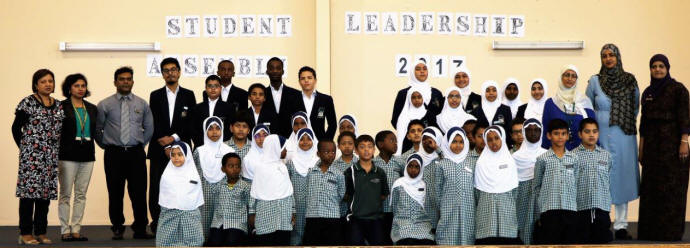
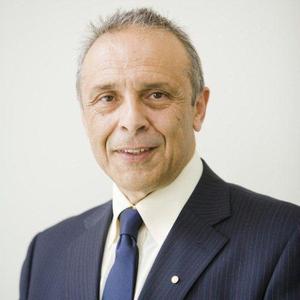 The
SBS Board and Executive
today welcomed the
appointment of Dr Bulent
Hass Dellal AO as the SBS
Chairman, as announced by
the Minister for
Communications, Mitch
Fifield.
The
SBS Board and Executive
today welcomed the
appointment of Dr Bulent
Hass Dellal AO as the SBS
Chairman, as announced by
the Minister for
Communications, Mitch
Fifield.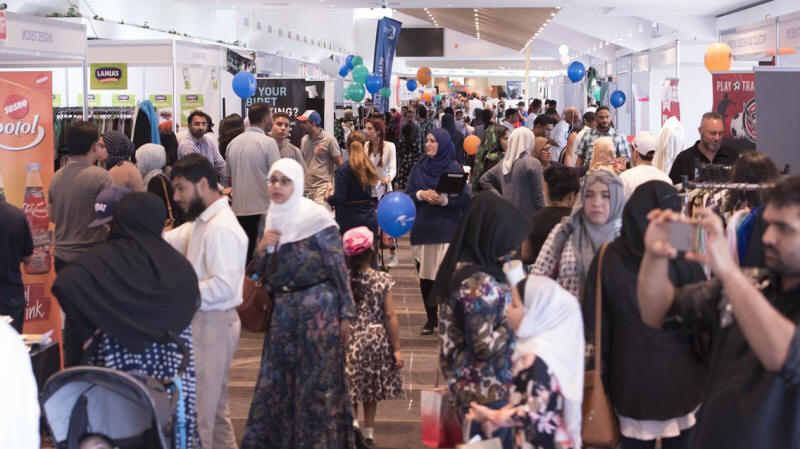
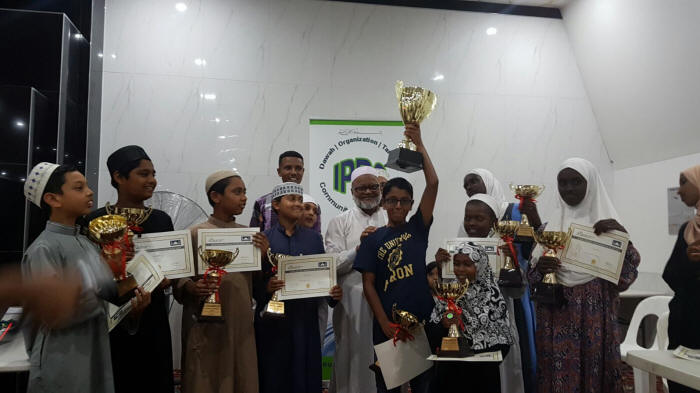
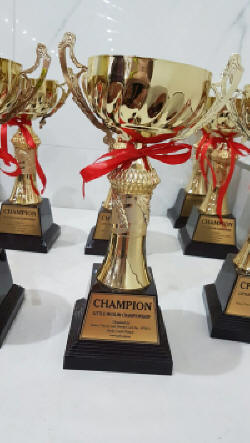
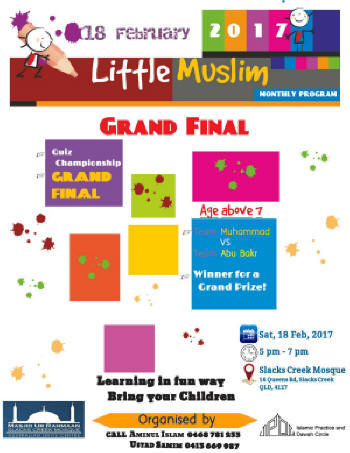
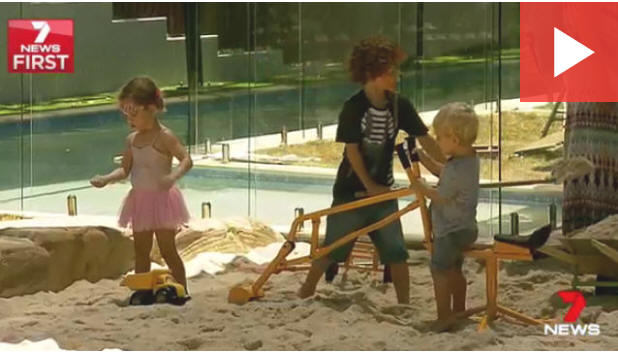
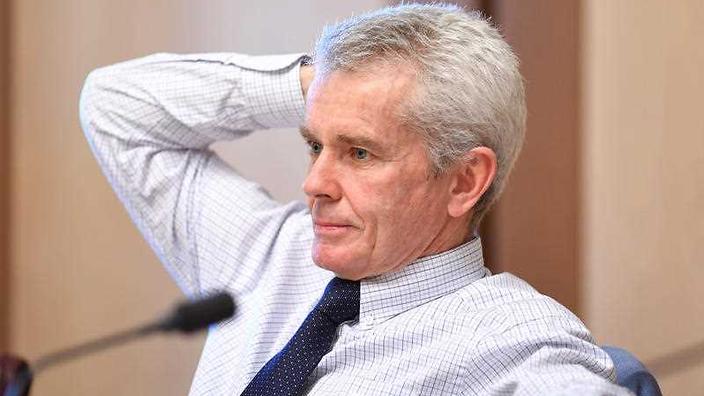
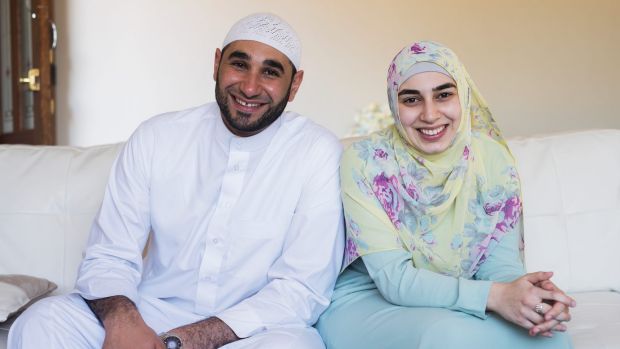







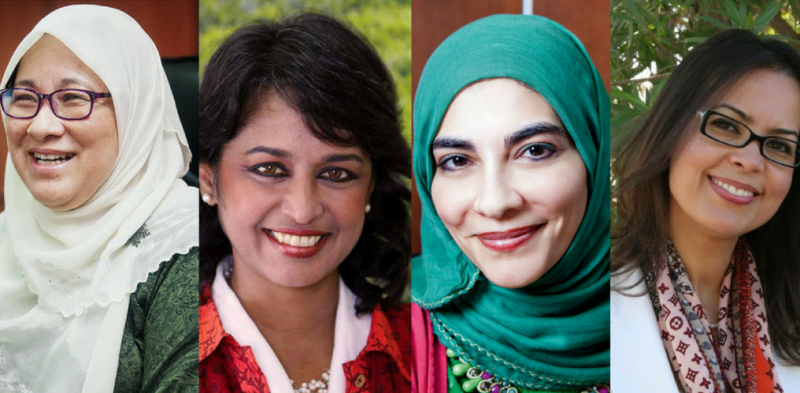
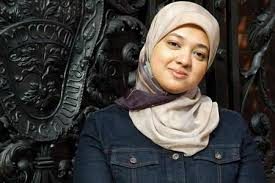
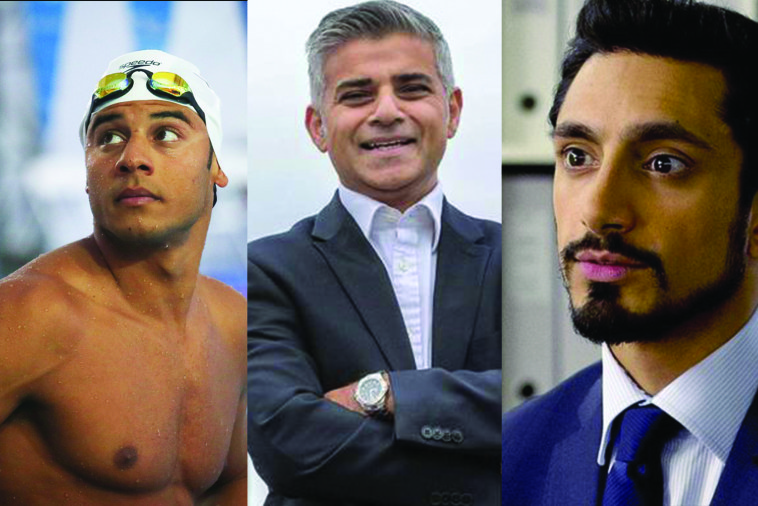
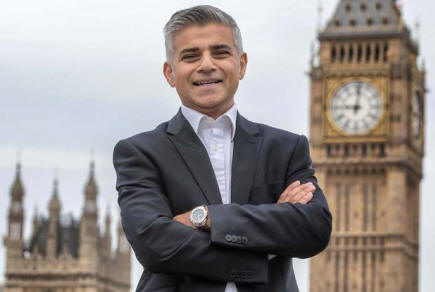
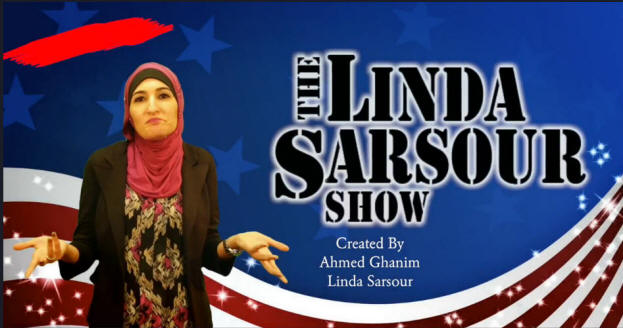
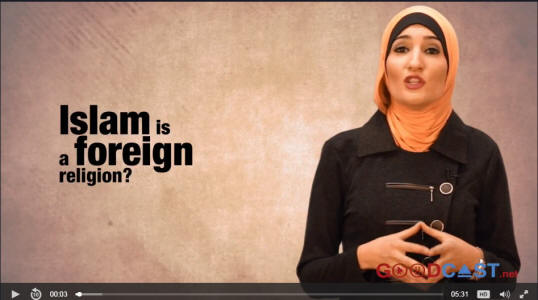
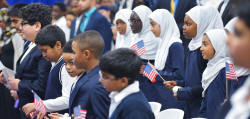
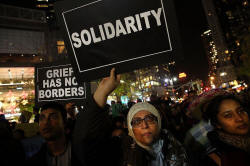
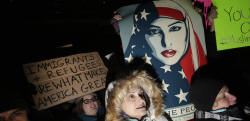
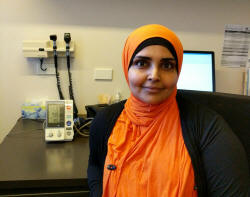



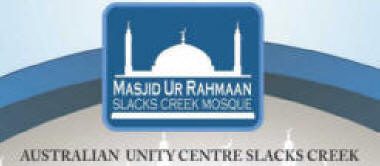

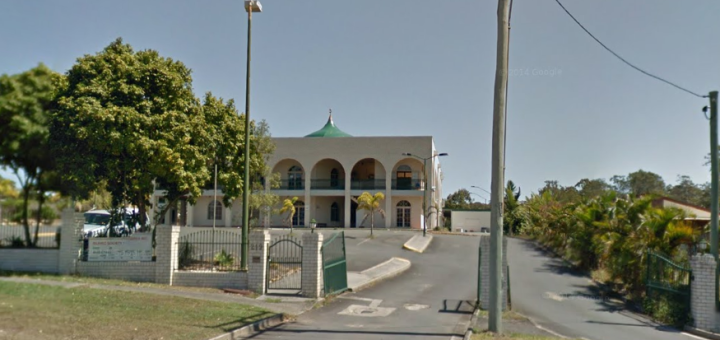


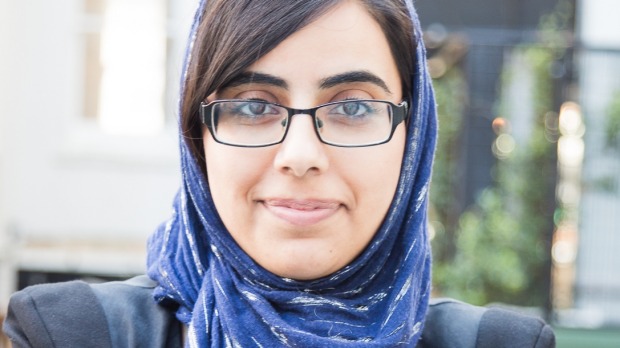
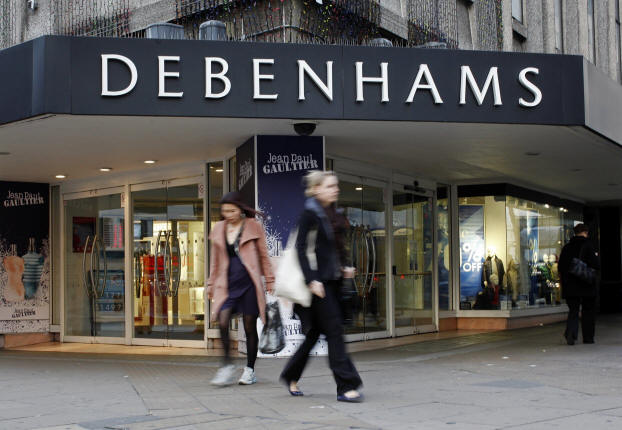
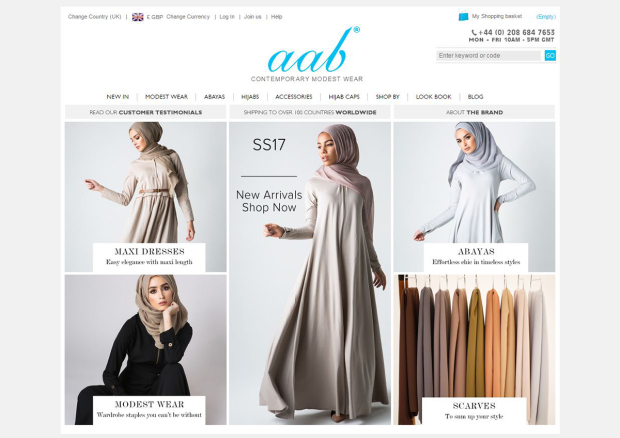
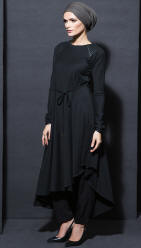
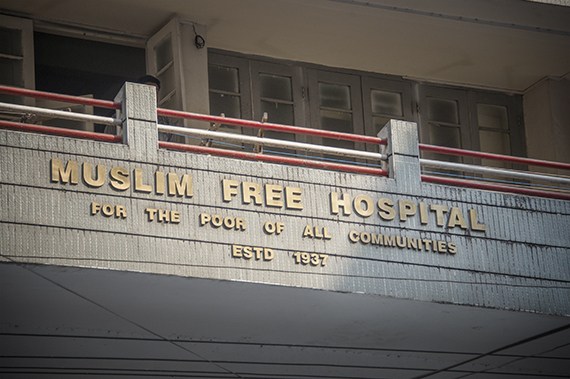

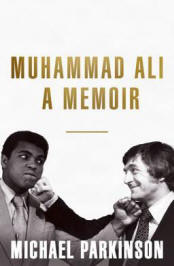




















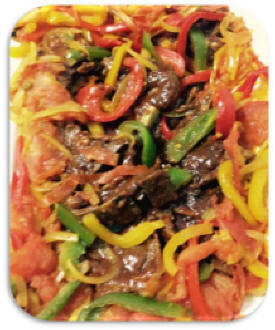
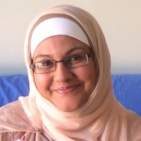


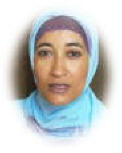
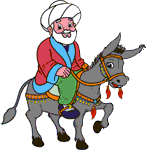
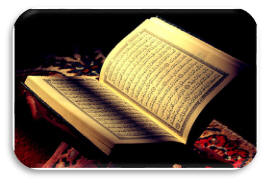









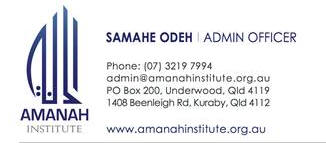










 Grab
our essential pack and start your fitness journey today
Grab
our essential pack and start your fitness journey today